CMISF 2024: Advancing Computational Immunology at the IEEE International Conference on Bioinformatics and Biomedicine
For the eighth consecutive year, we are thrilled to announce the success of the Computational Modeling in Immunology and Systems Biology Workshop (CMISF 2024), held in conjunction with the prestigious IEEE International Conference on Bioinformatics and Biomedicine.
This year, the workshop focused on computational immunology, offering a dynamic platform for exploring cutting-edge research and fostering discussions around new perspectives in the field. The event provided an invaluable opportunity to exchange knowledge and advance our understanding of immune system modeling.
We extend our deepest gratitude to all researchers, participants, and speakers who contributed to this enriching experience. Below, we highlight some of the remarkable presentations delivered during the workshop:
Key Presentations
Elena Crispino
“Predicting Skin Sensitizer Potency and Immune Response Using UISS-TOX: A Novel Approach for Assessing Allergenic Potential”
Elena Crispino introduced a groundbreaking study leveraging UISS-TOX to predict immune responses in allergic contact dermatitis (ACD). By combining bioinformatic tools and in silico modeling, the research analyzed eight known skin sensitizers to evaluate their potency. Key findings included Th1-mediated responses and cytokine dynamics correlating with sensitizer potency. This study underscores the potential of UISS-TOX as a reliable New Approach Methodology (NAM) for allergenicity prediction, offering a path to reduce animal testing in line with ethical and scientific advancements.
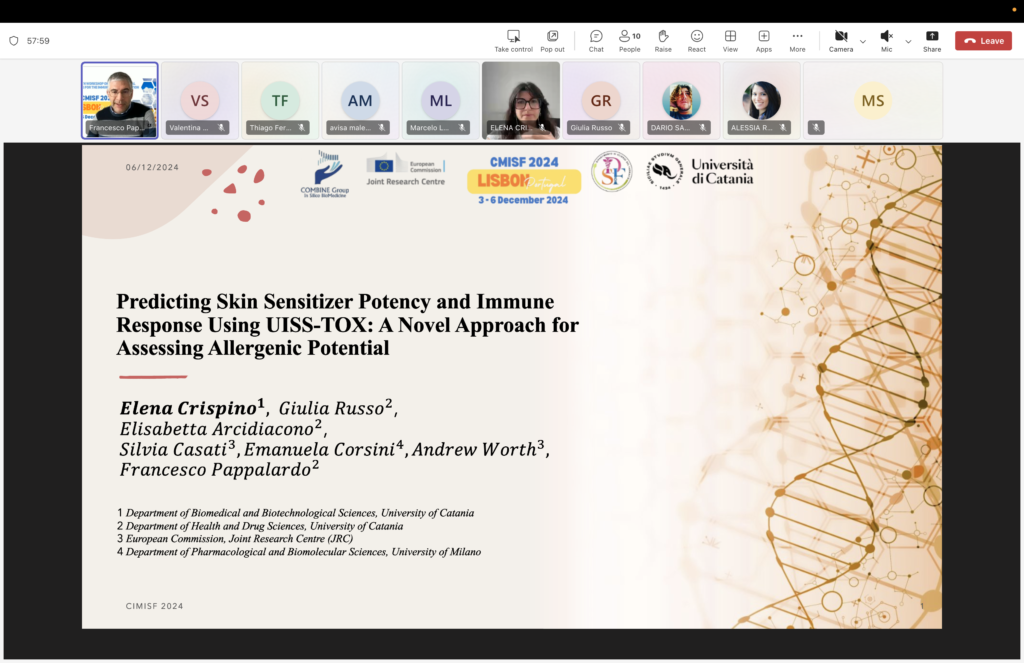
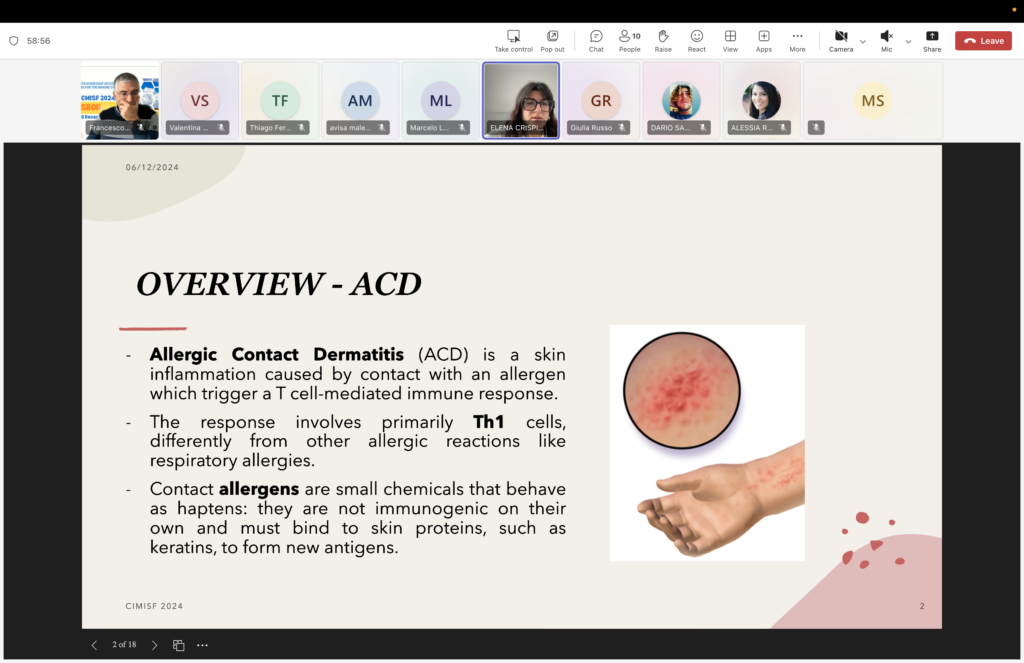
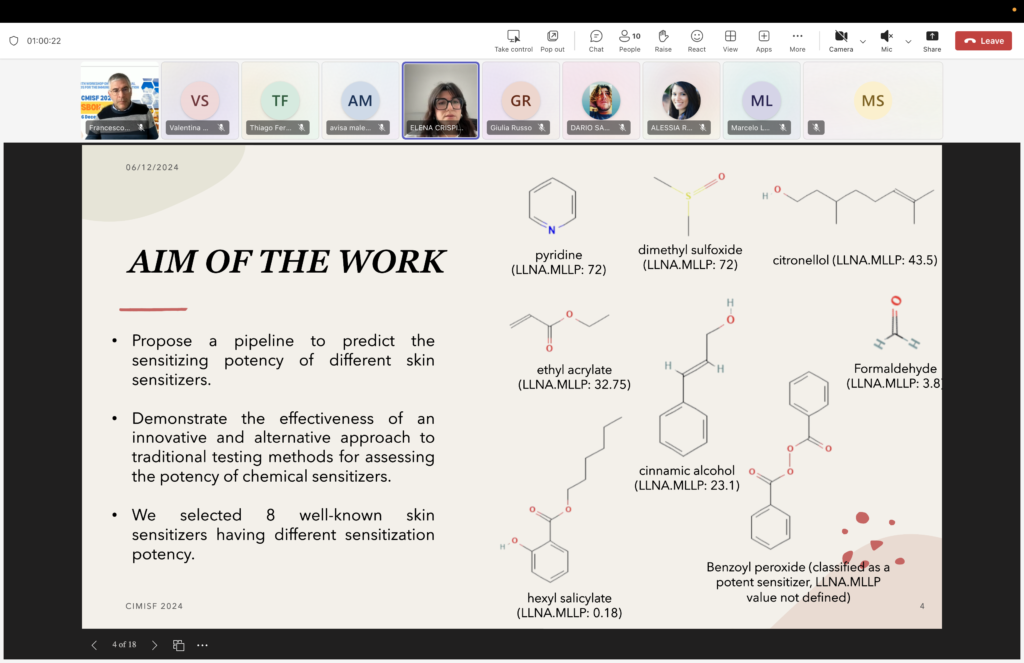
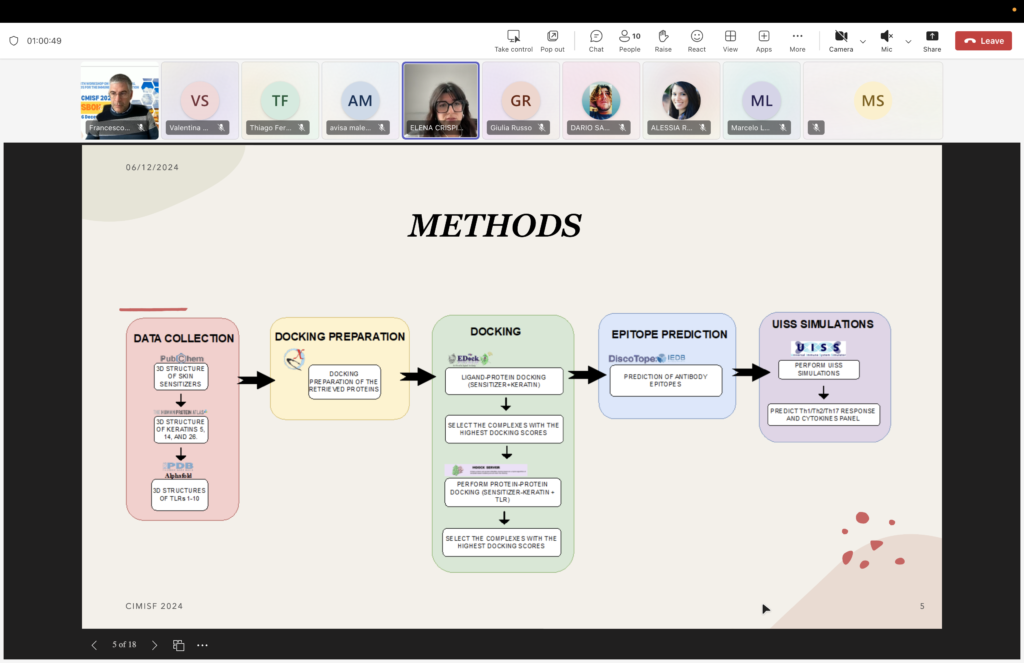
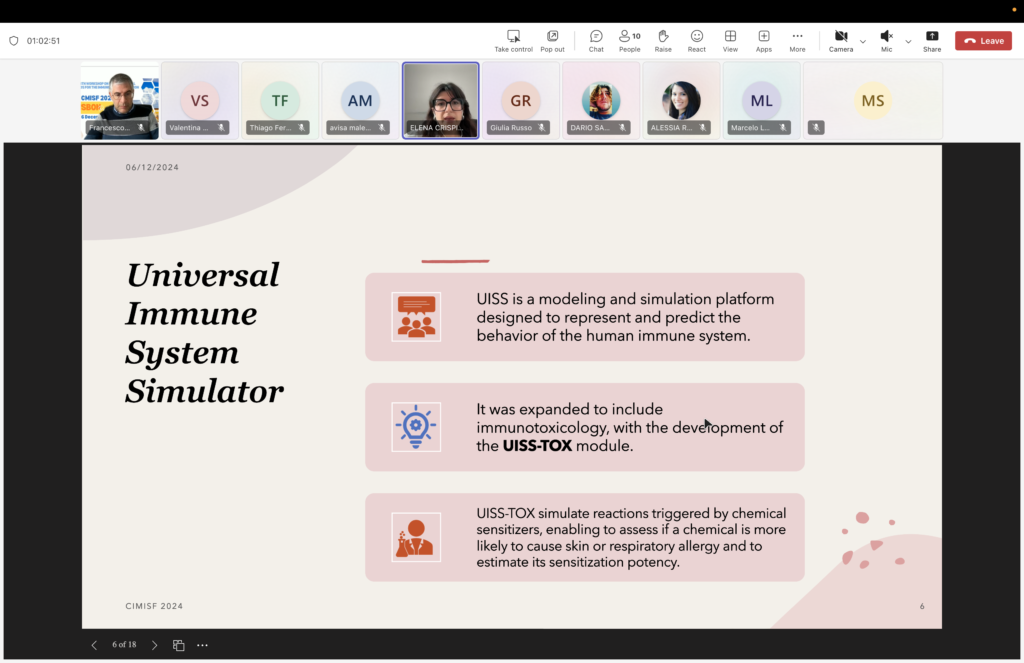
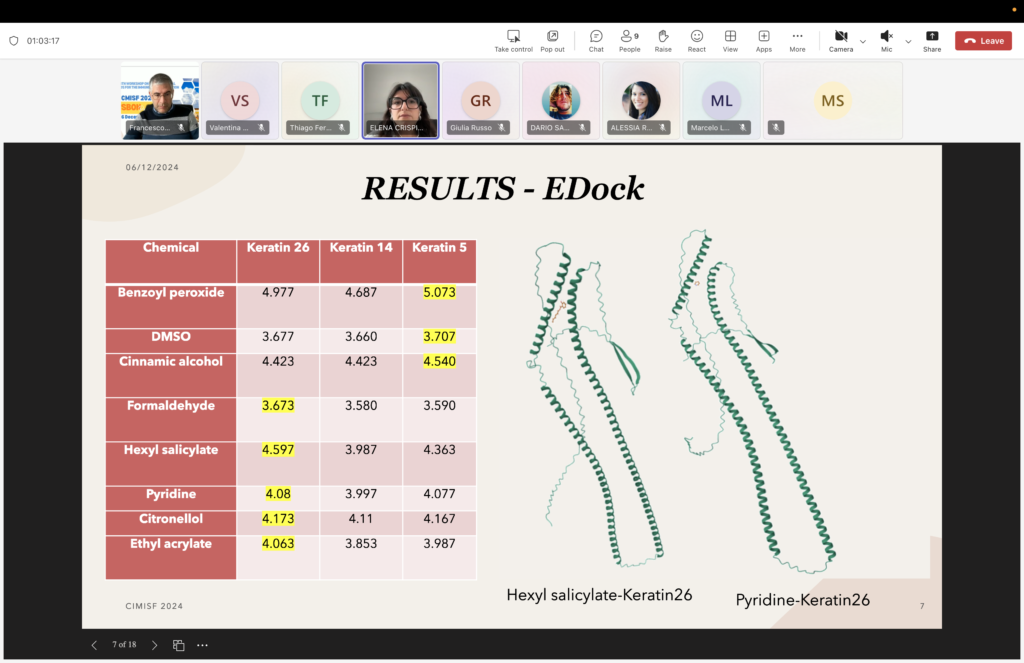
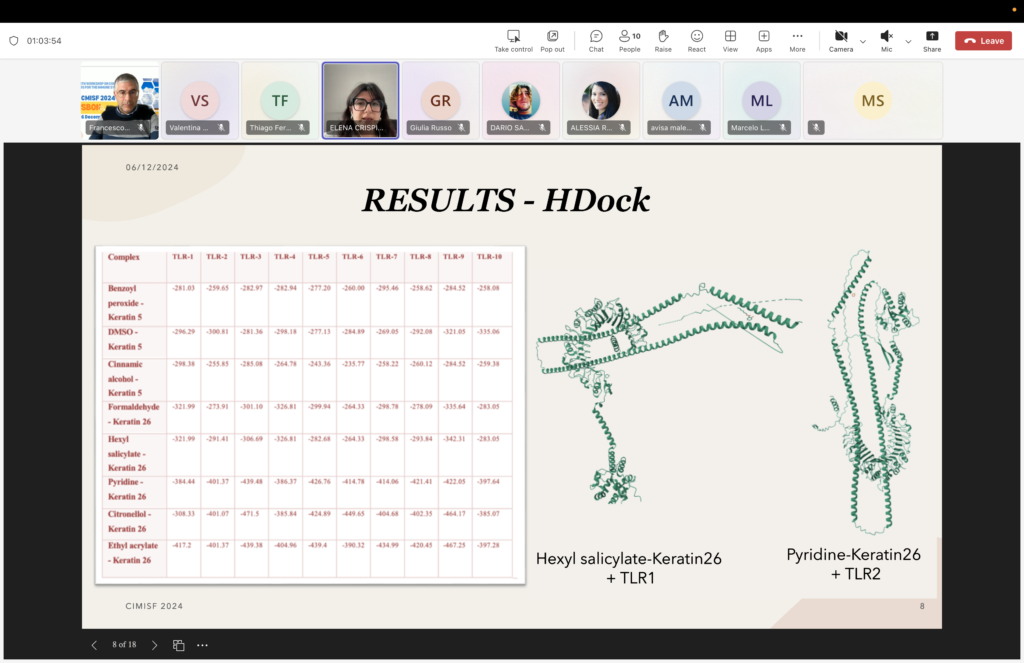
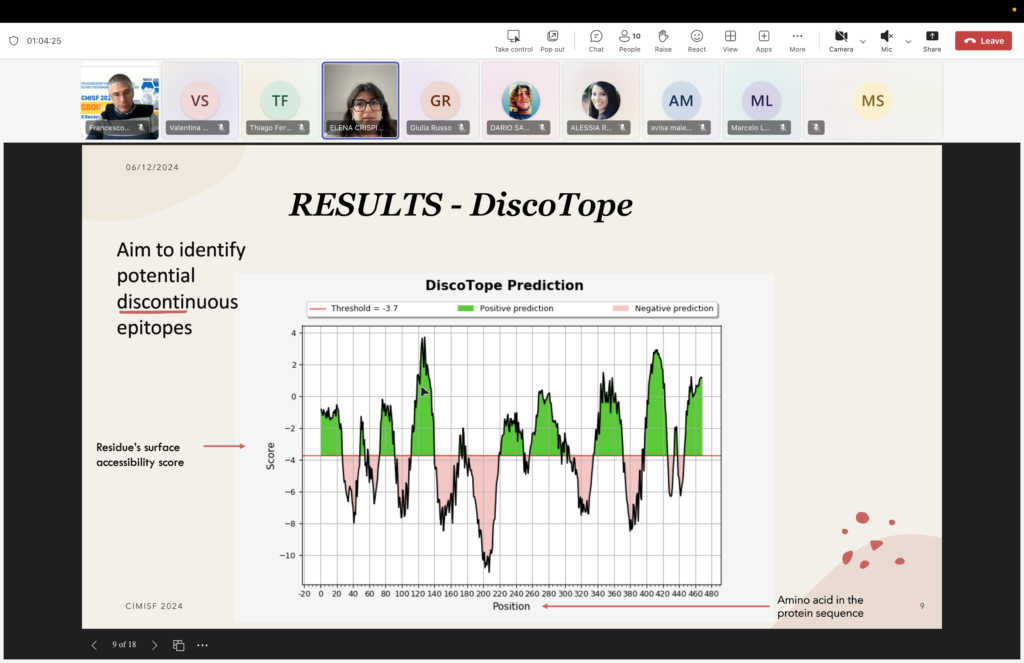
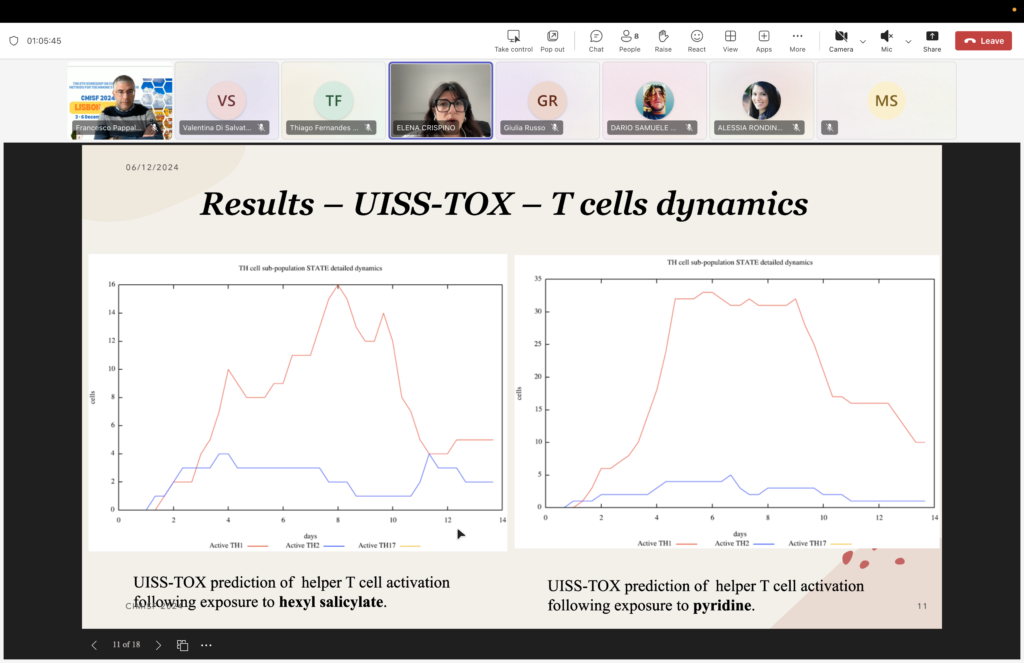
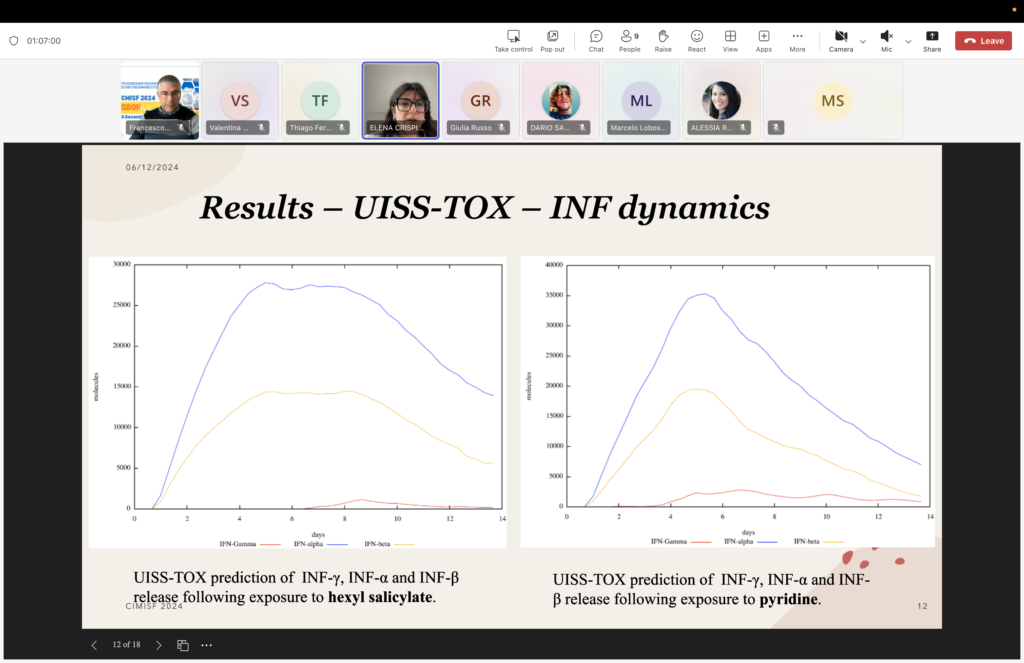
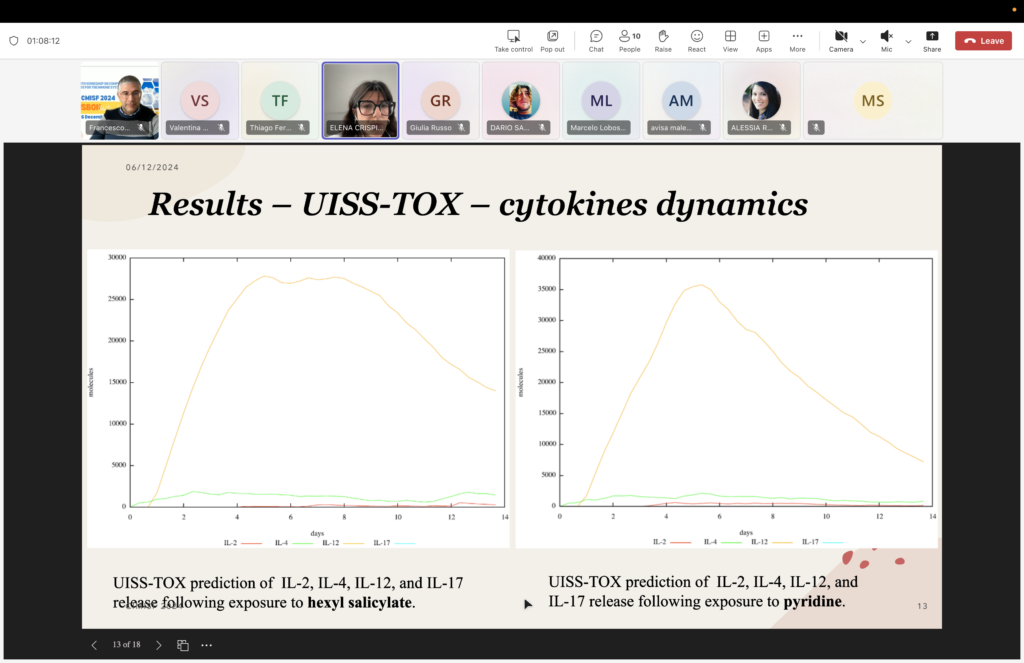
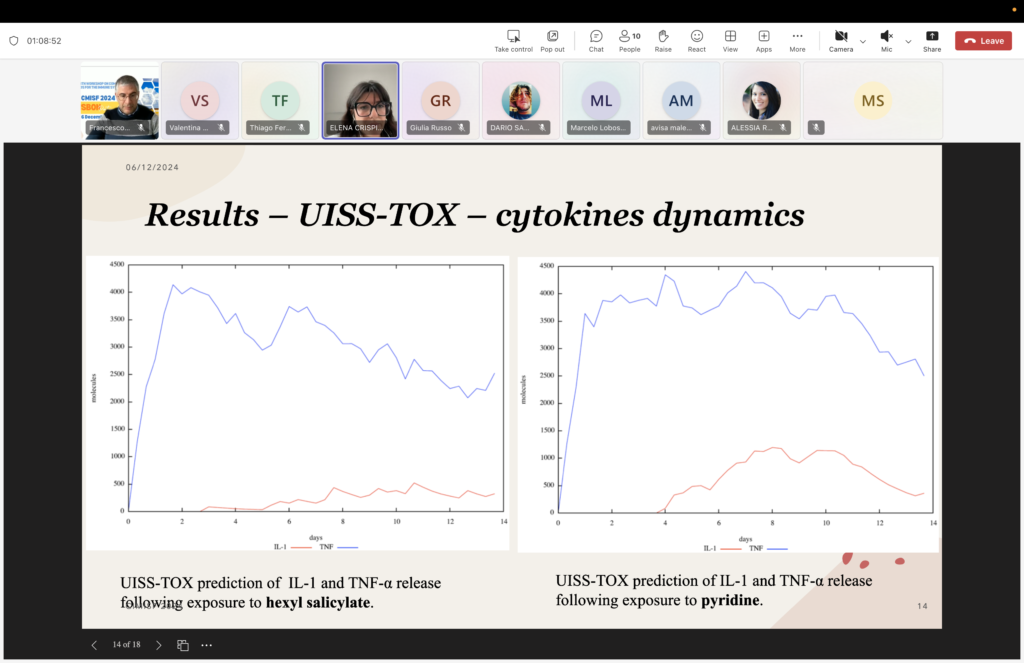
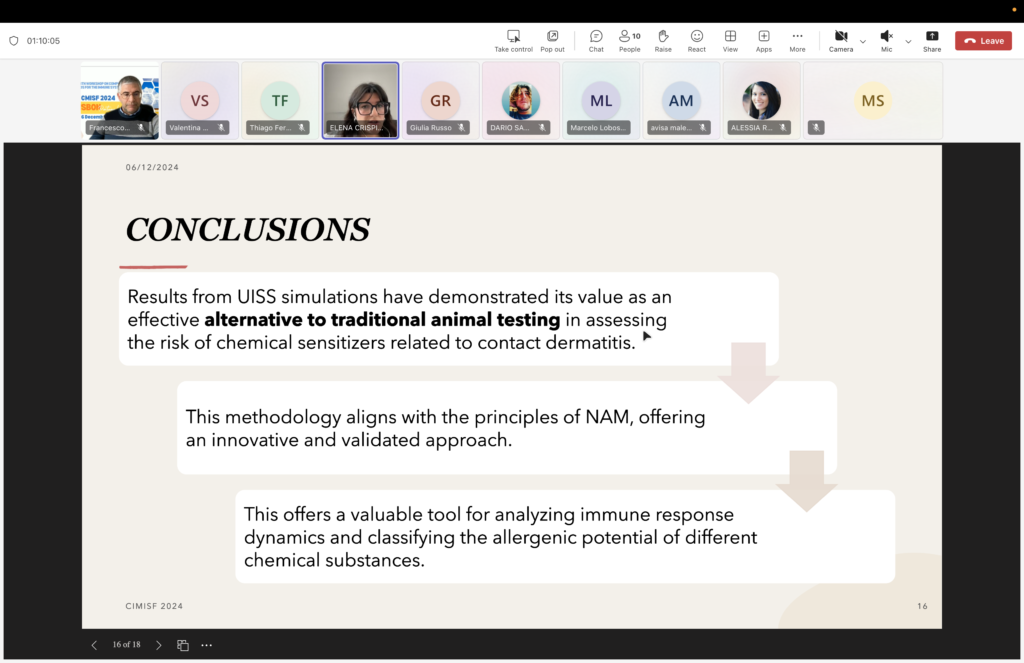
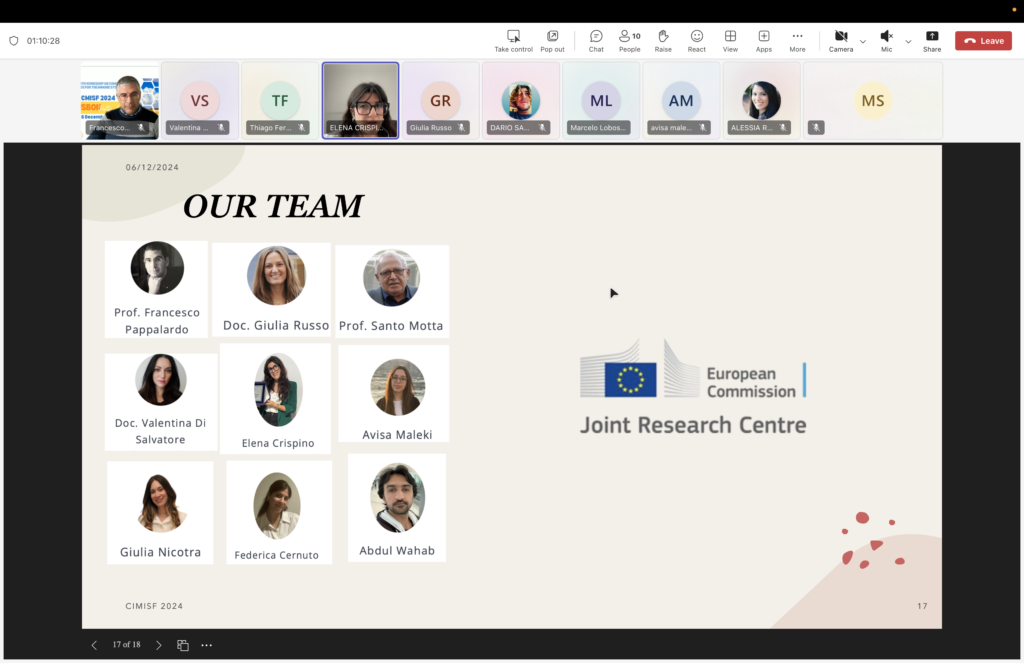
Avisa Maleki
“A Head-to-Head Evaluation of a Novel Universal Influenza Vaccine Against Current Formulation: Implications for Future Immunization Strategies”
Avisa Maleki presented a comparative analysis of a novel universal influenza vaccine and the current seasonal vaccine, FLUAD QUADRIVALENT, using in silico simulations. This research sheds light on the potential benefits of universal vaccines, which could revolutionize global immunization strategies by addressing limitations of current seasonal formulations.
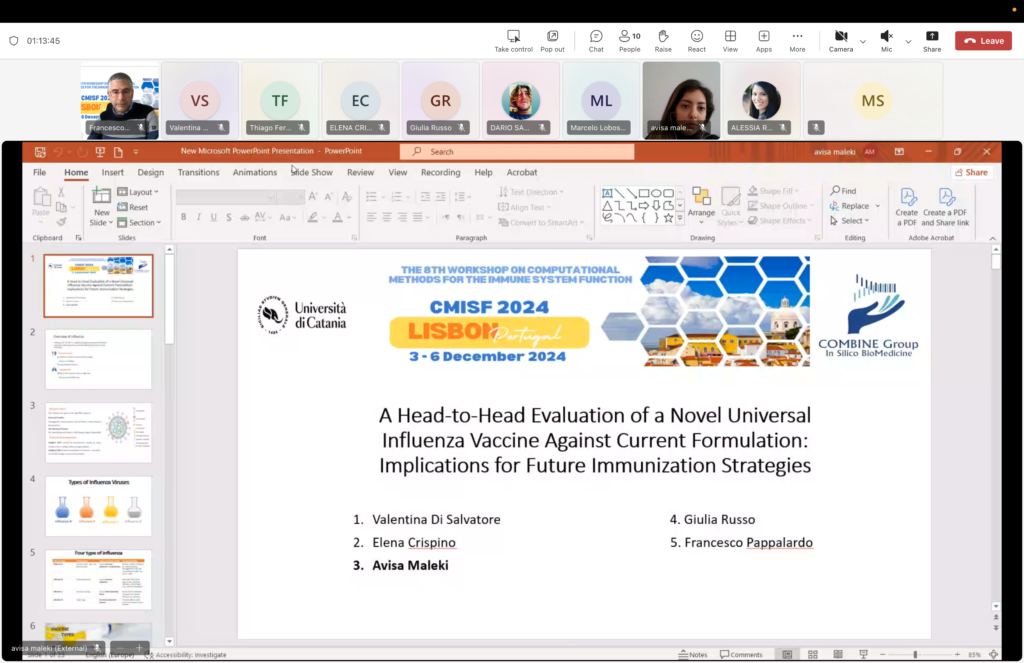
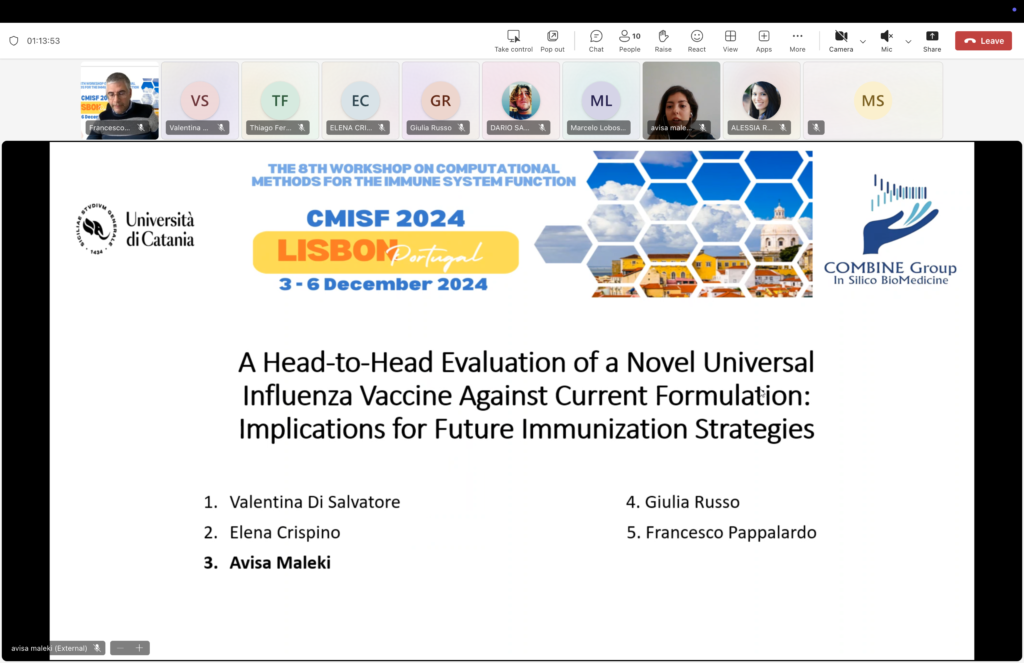
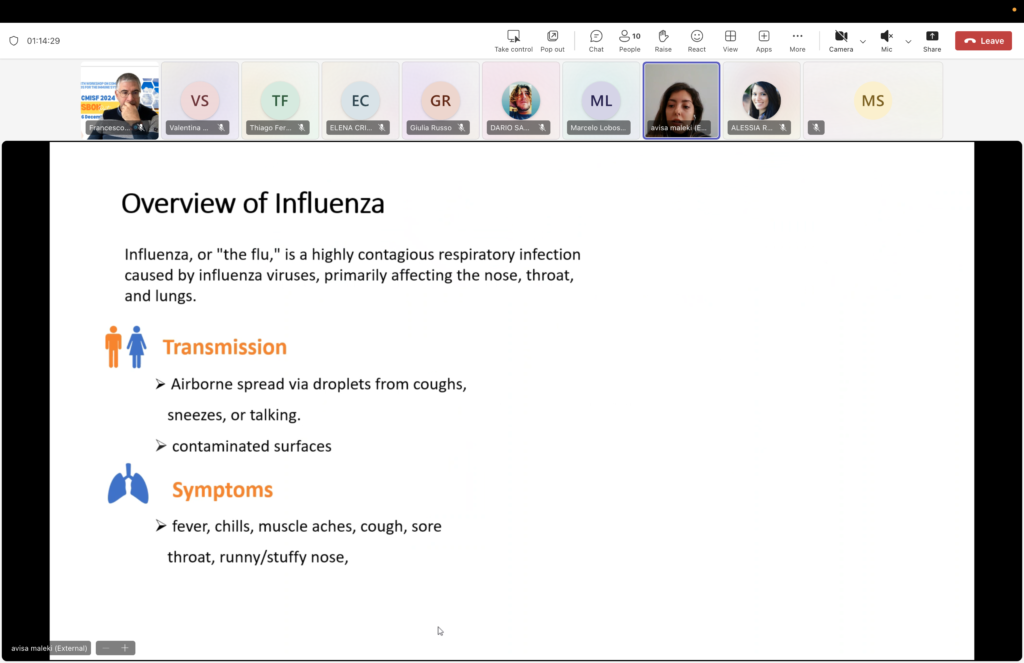
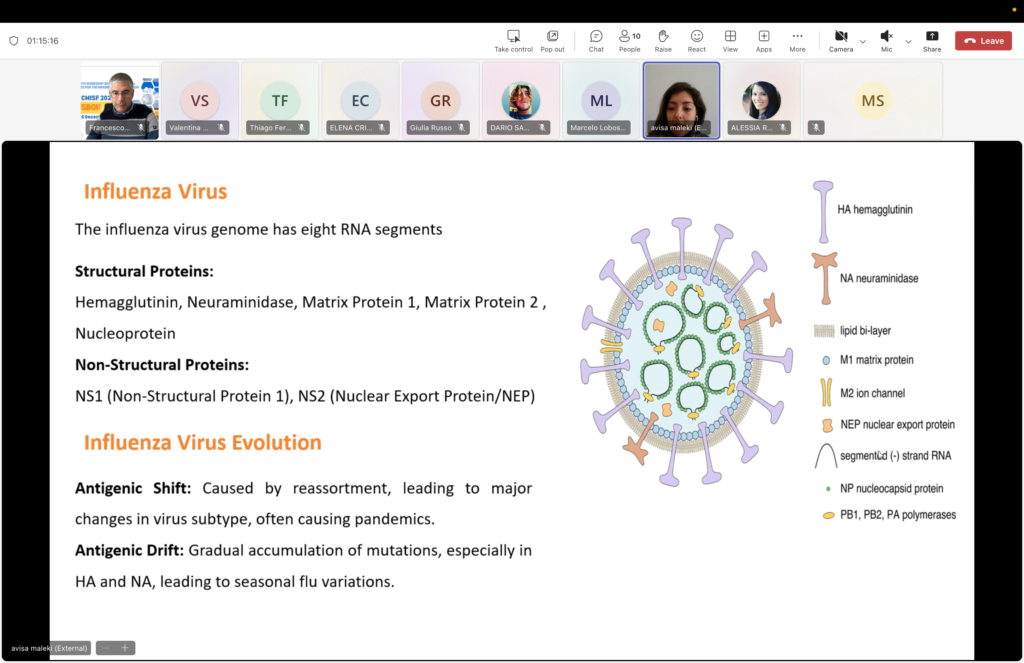
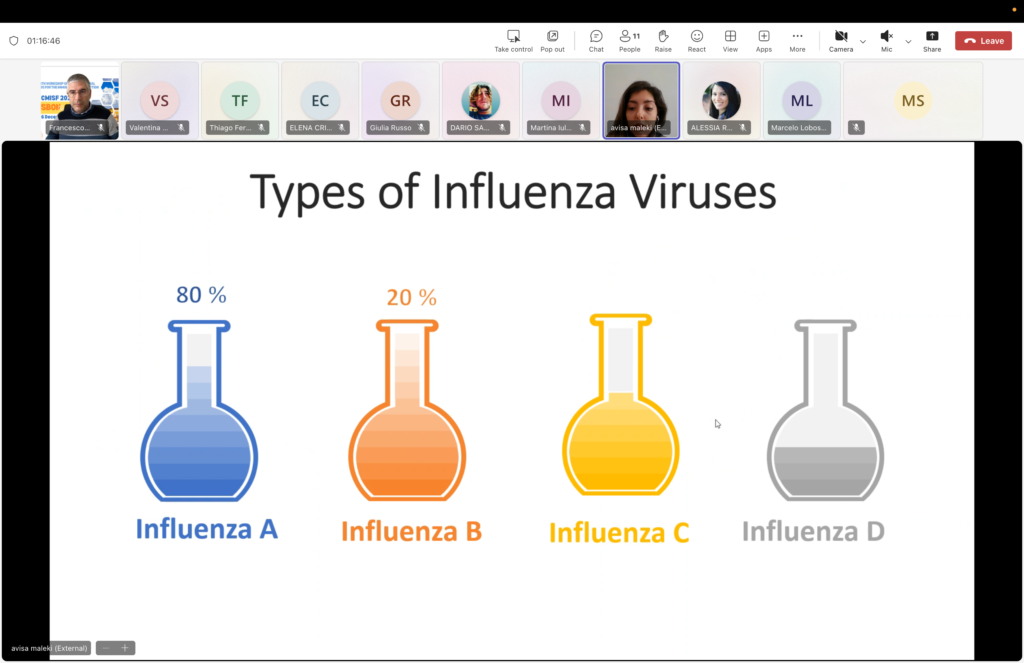
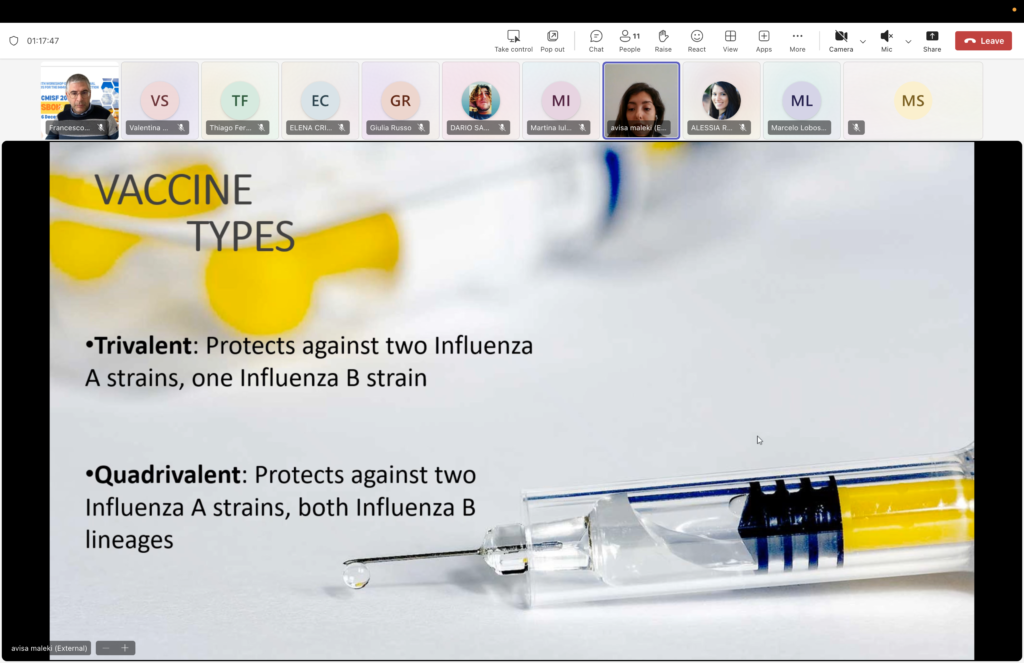
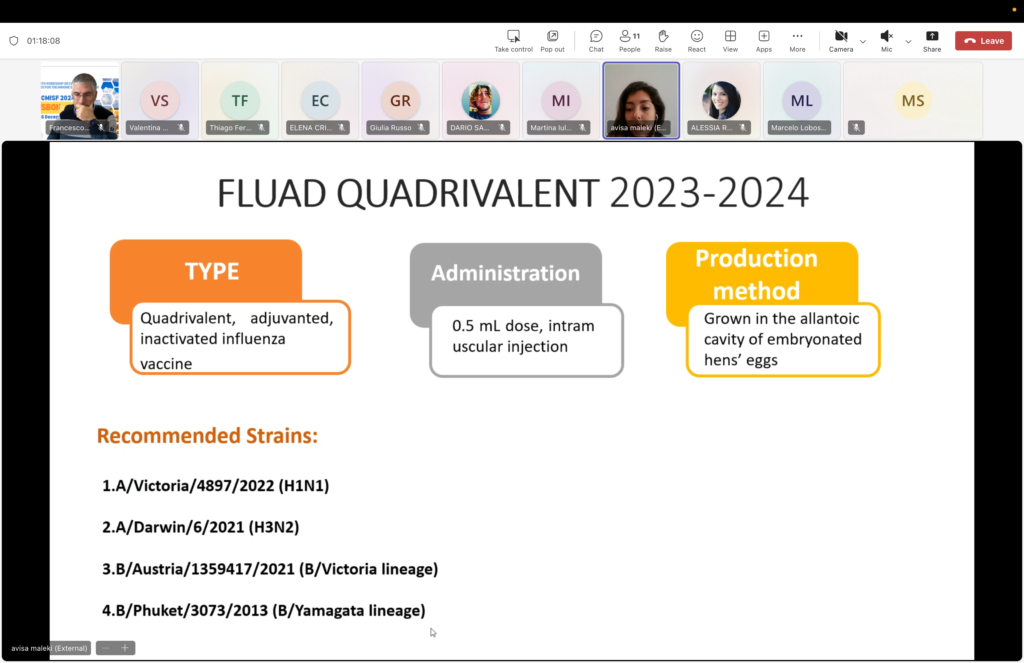
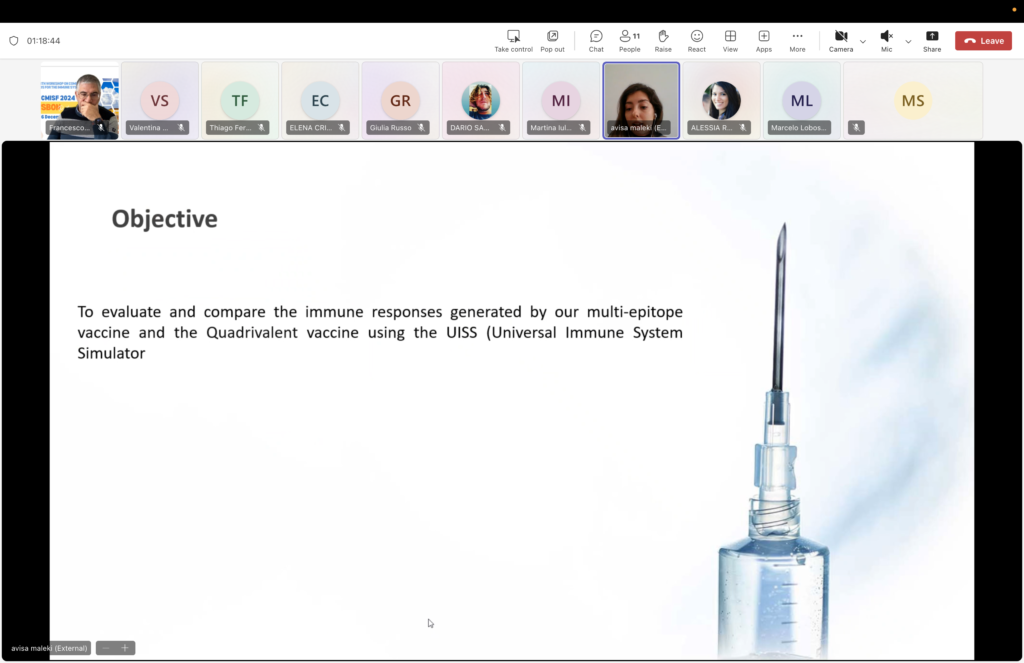
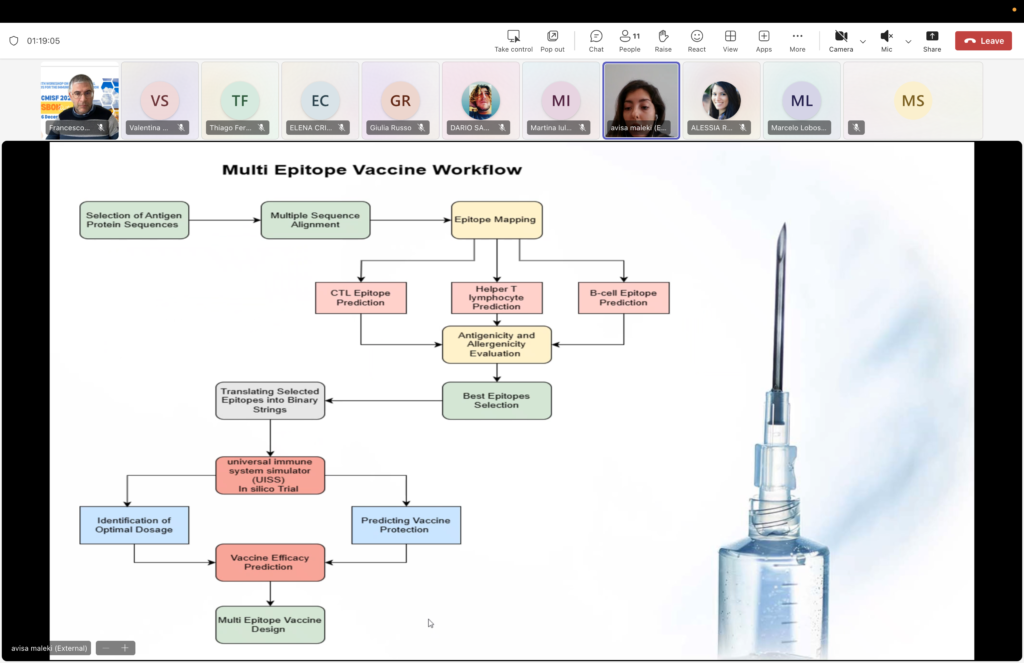
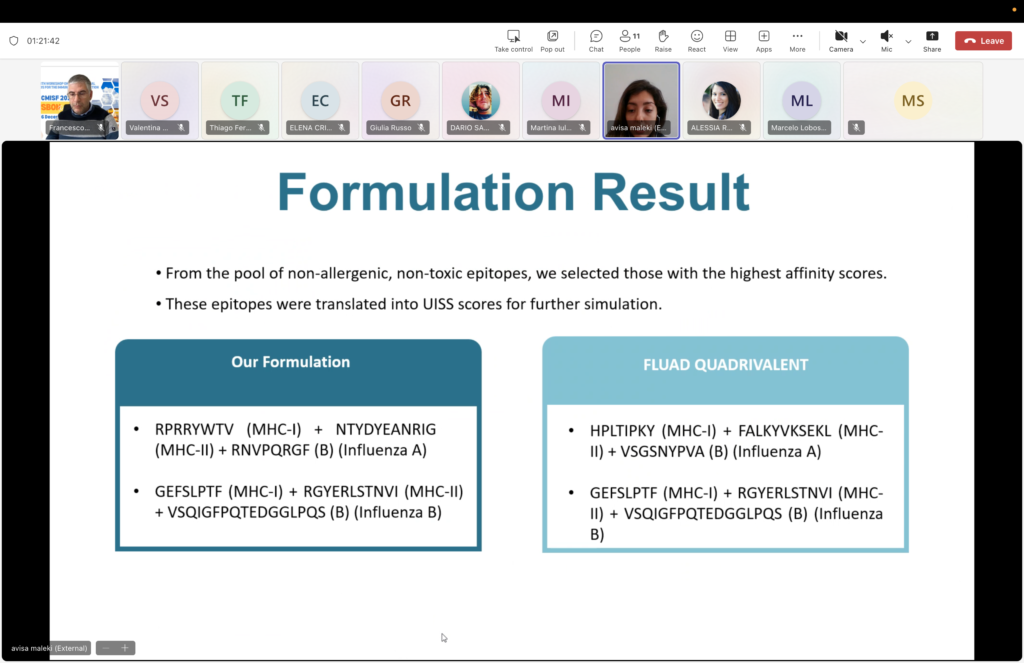
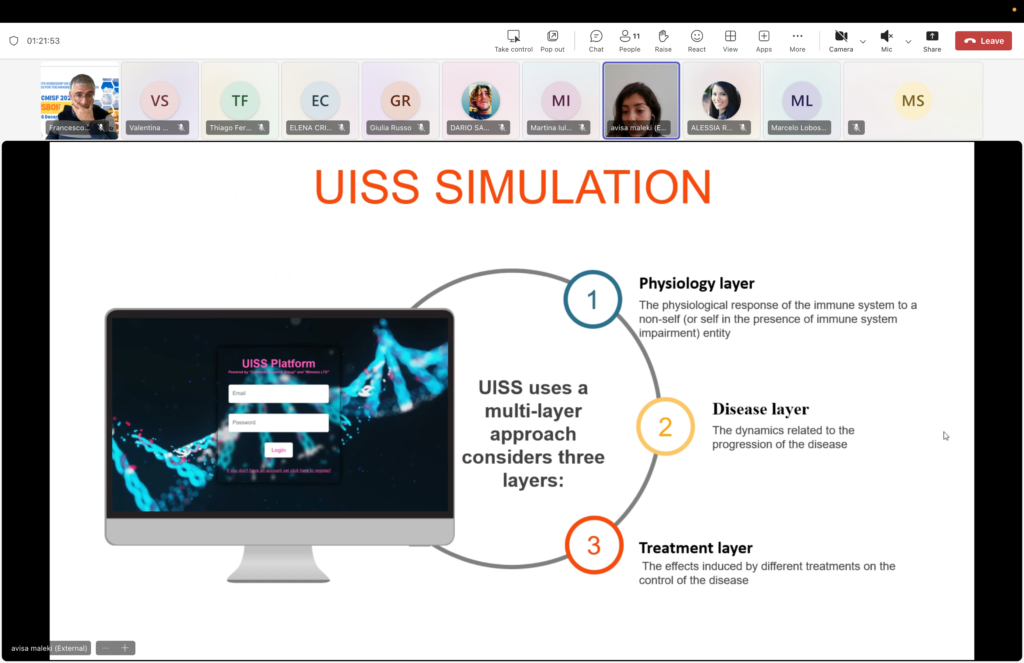
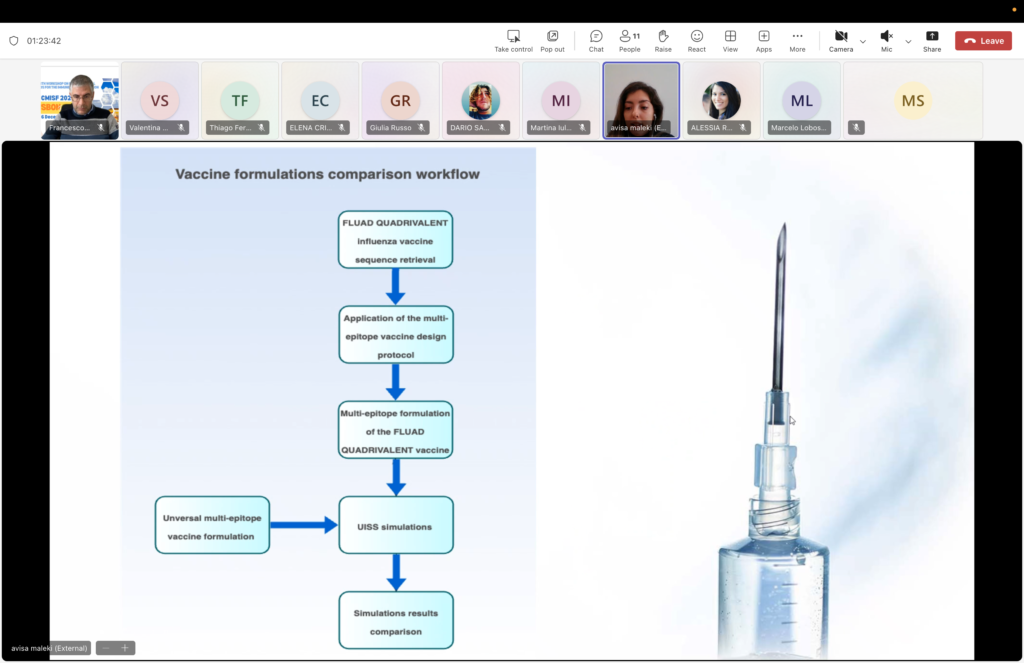
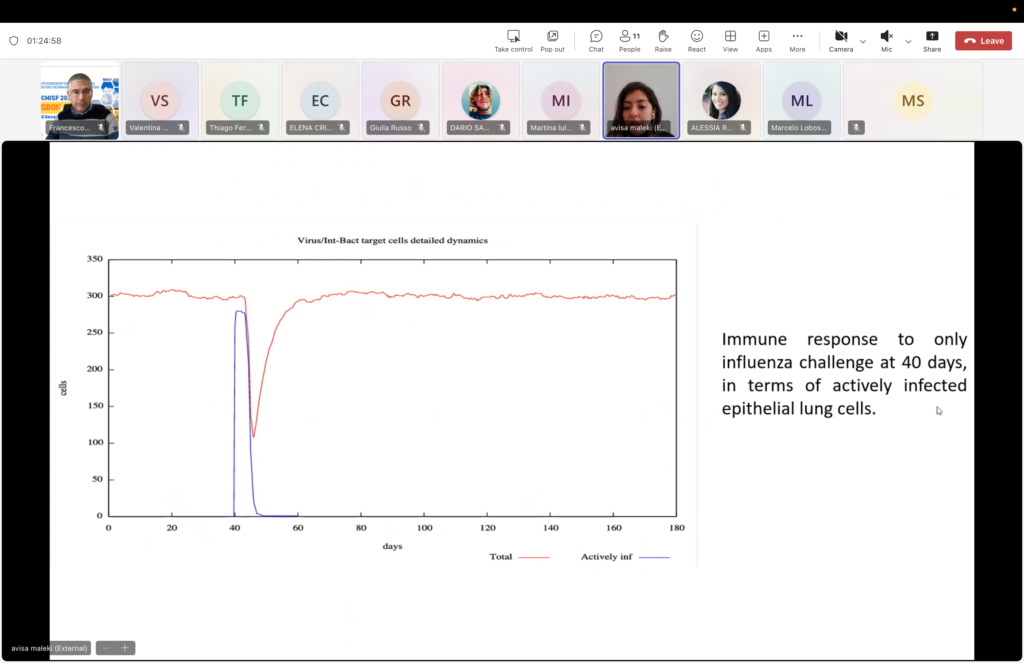
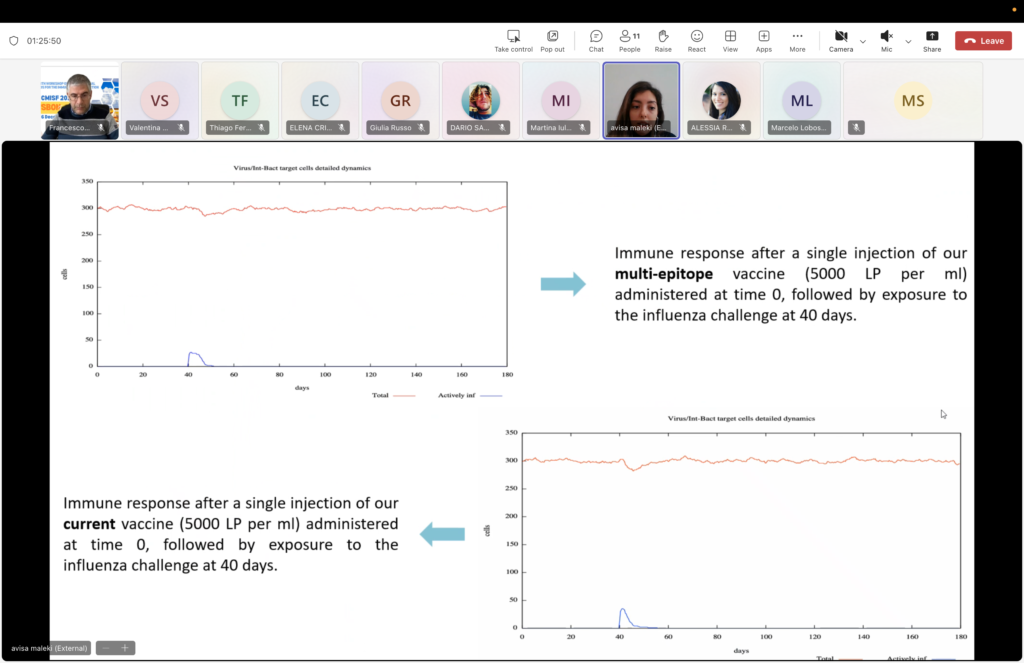
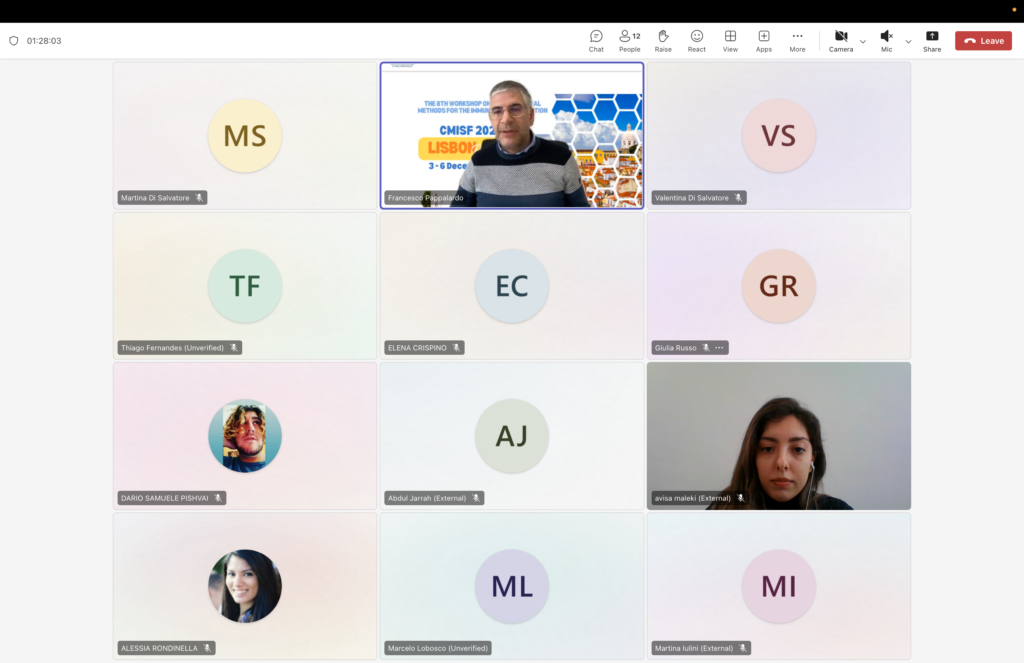
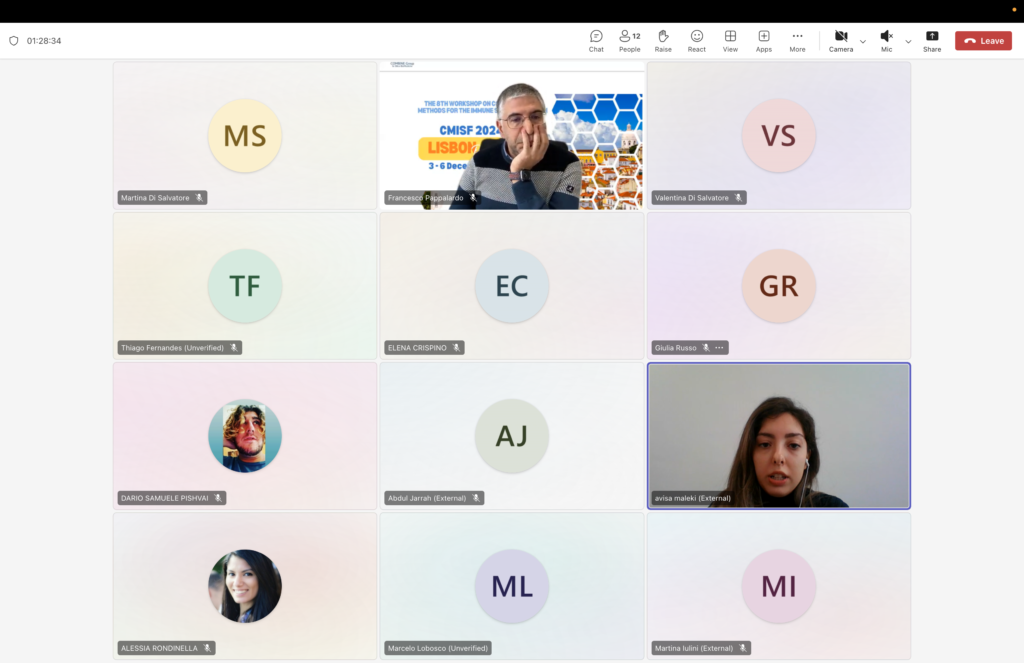
Valentina Di Salvatore
“Unintended Risks of mRNA COVID-19 Vaccines: A UISS Simulation Study on Immune and Organ Health”
Valentina Di Salvatore showcased the power of UISS to model the human immune response and investigate potential side effects of mRNA COVID-19 vaccines. Her study provides a deeper understanding of vaccine mechanisms and their implications for immune and organ health, offering valuable insights for improving vaccine safety profiles.
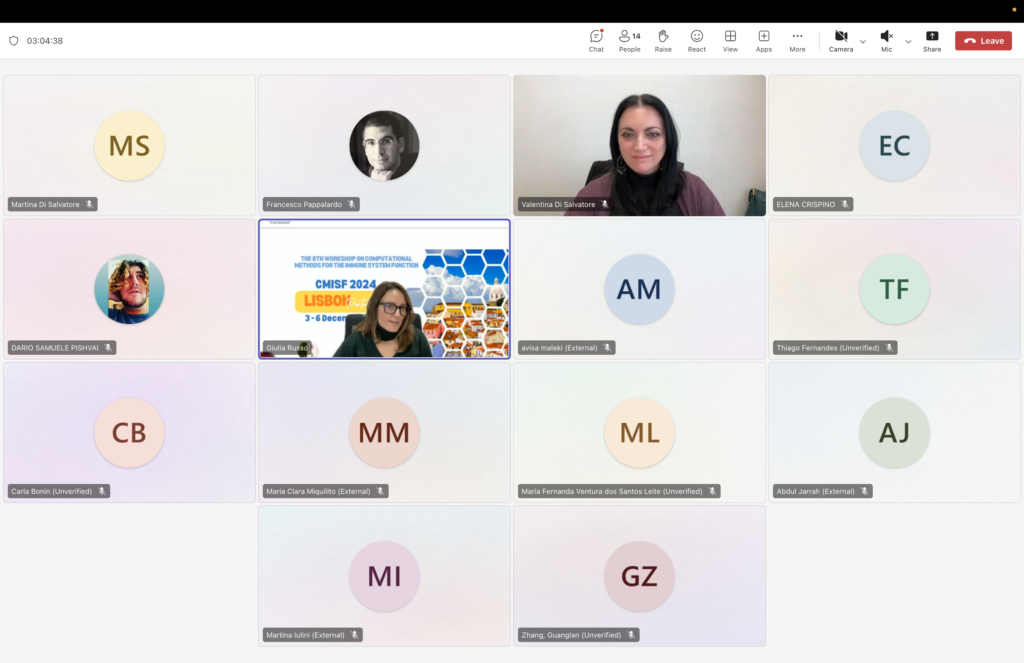
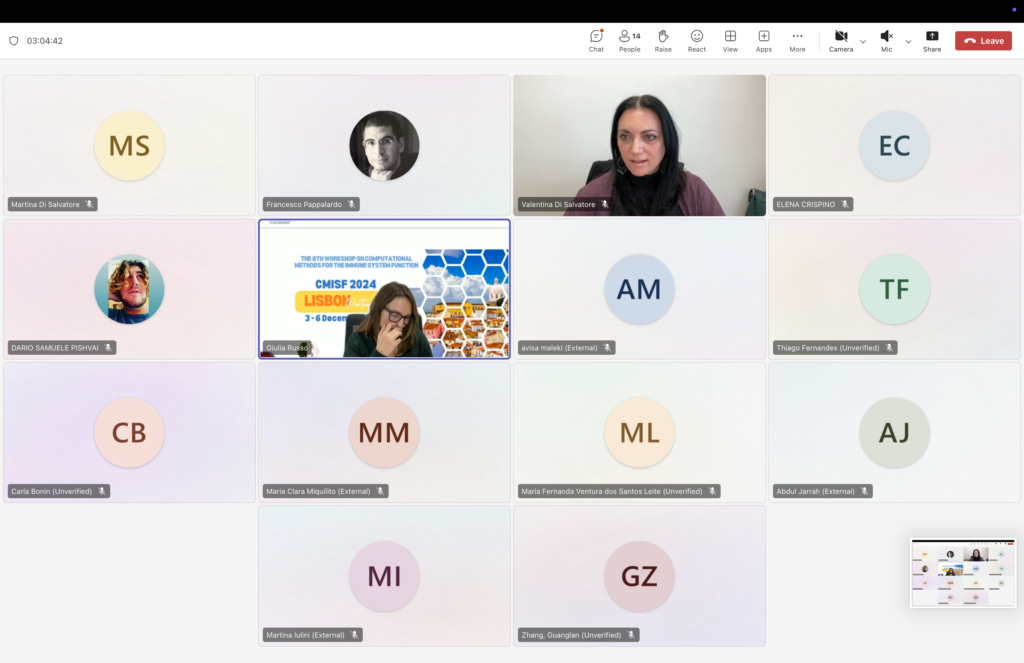
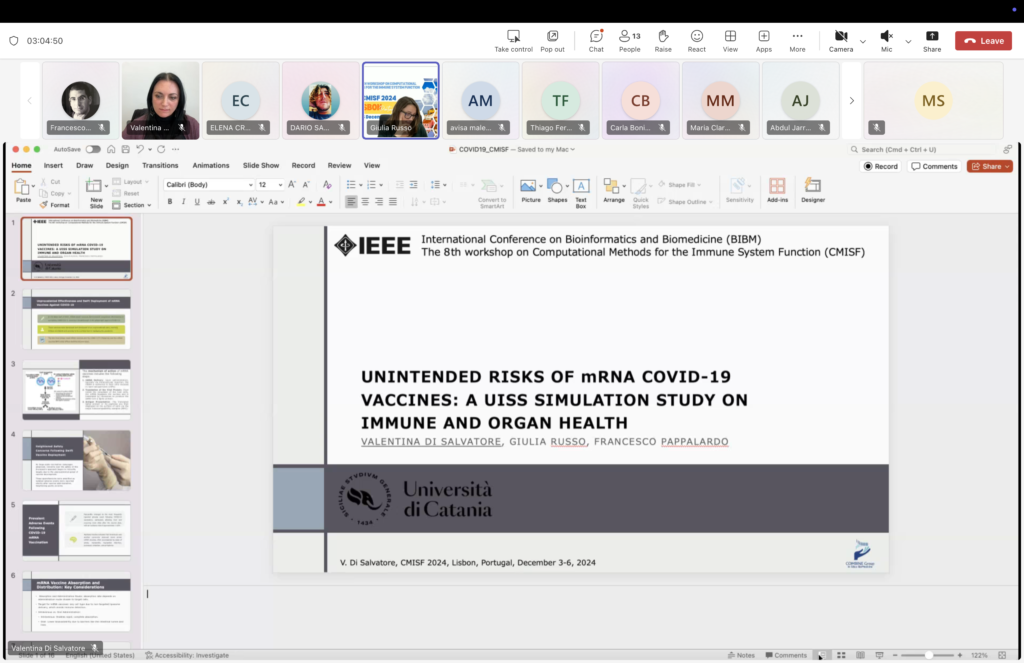
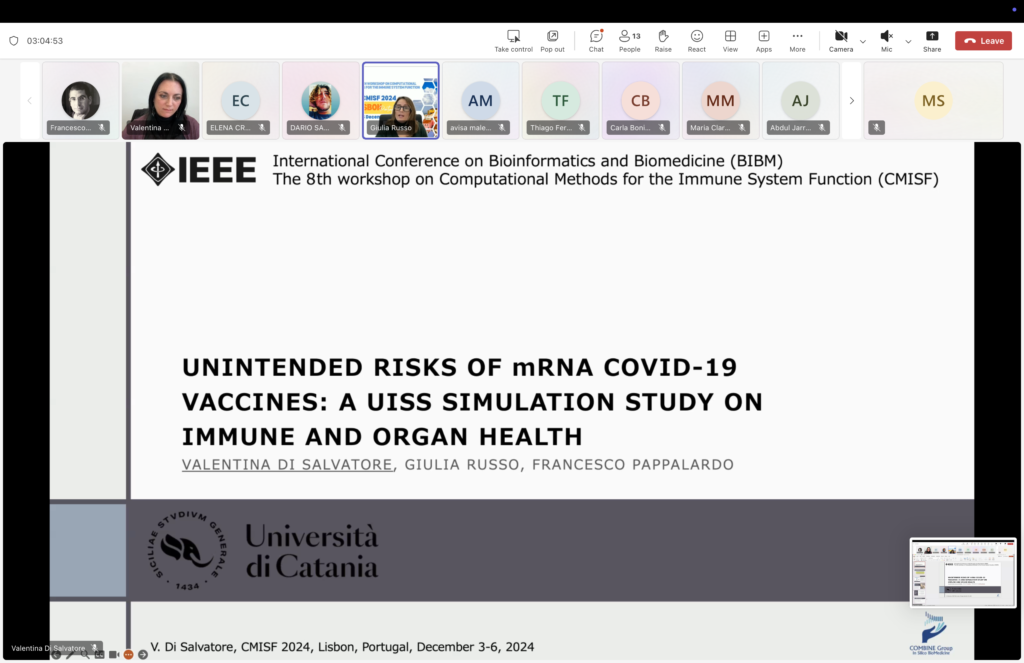
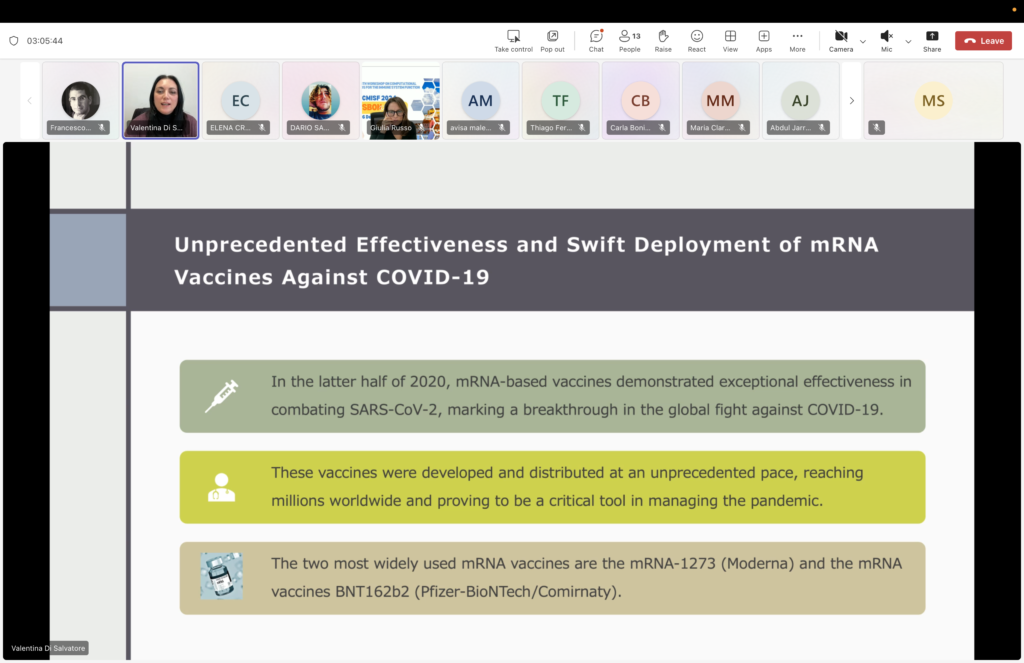
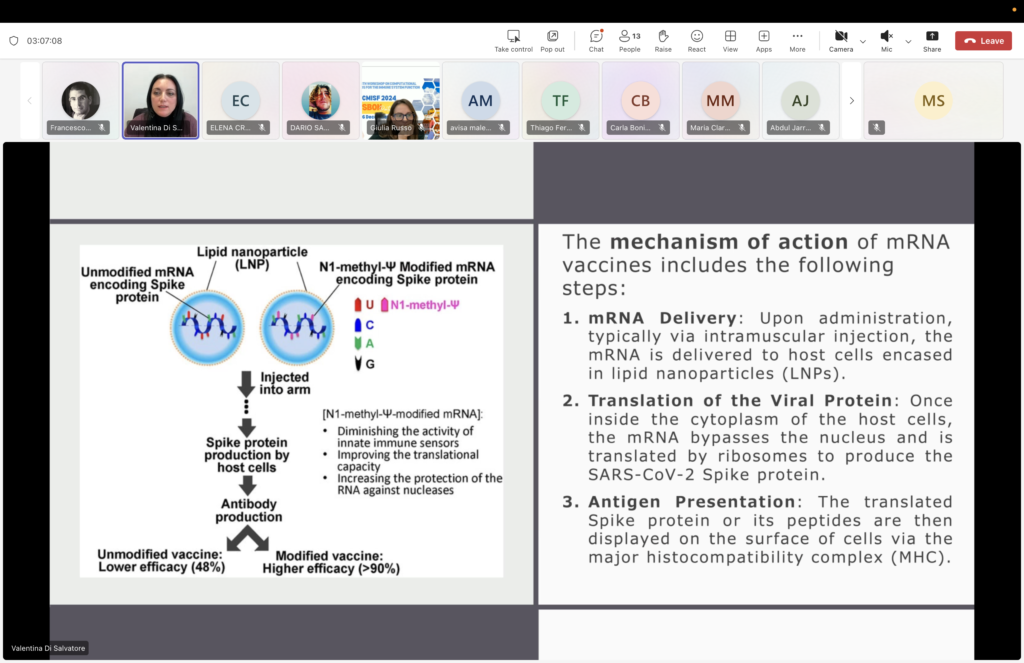
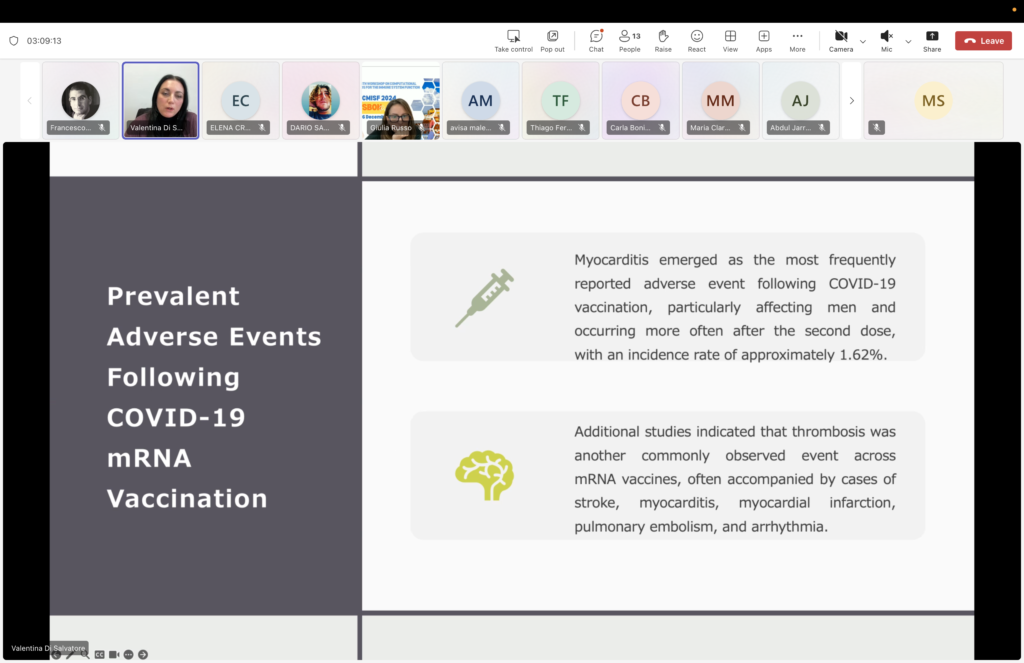
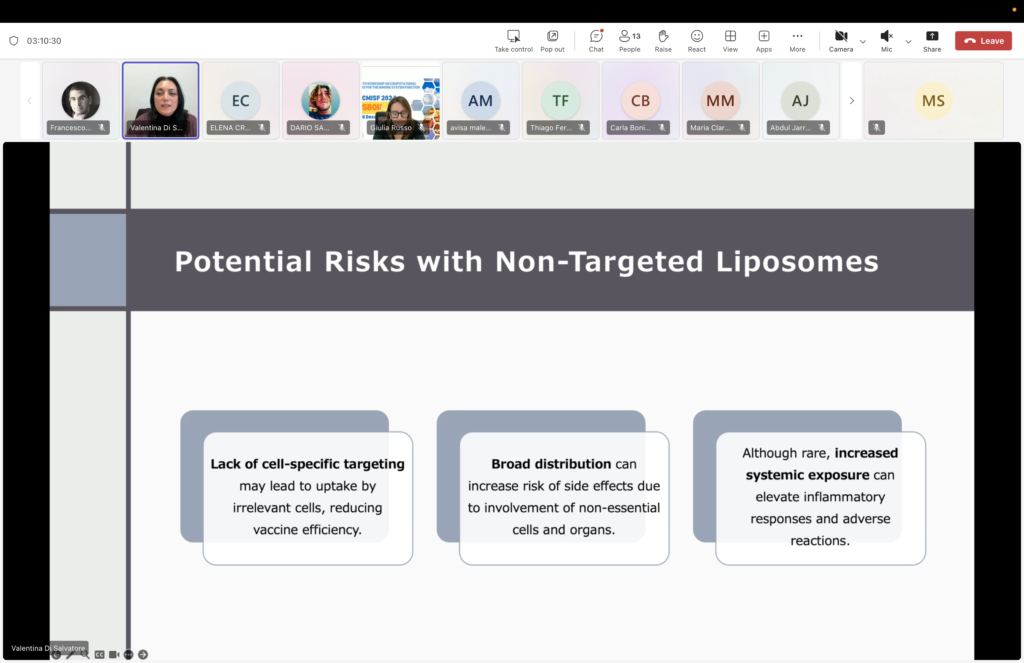
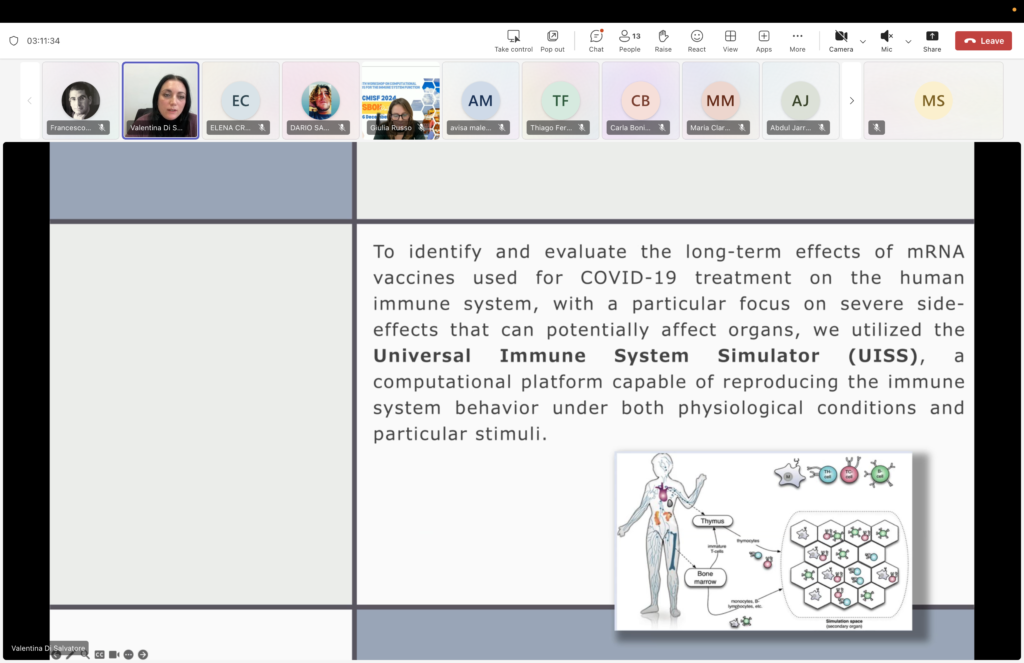

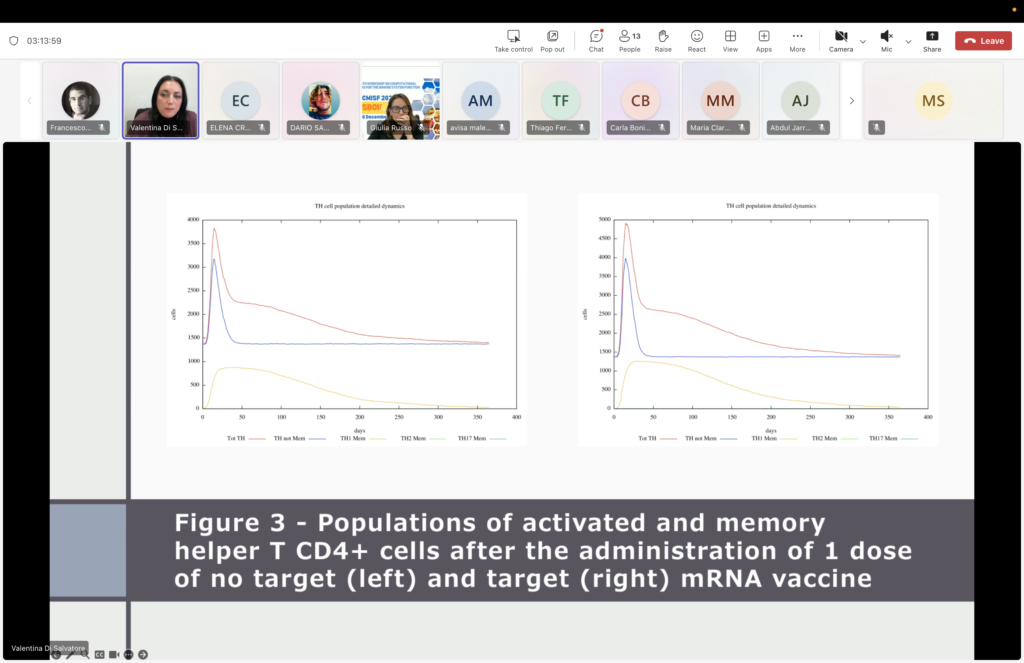
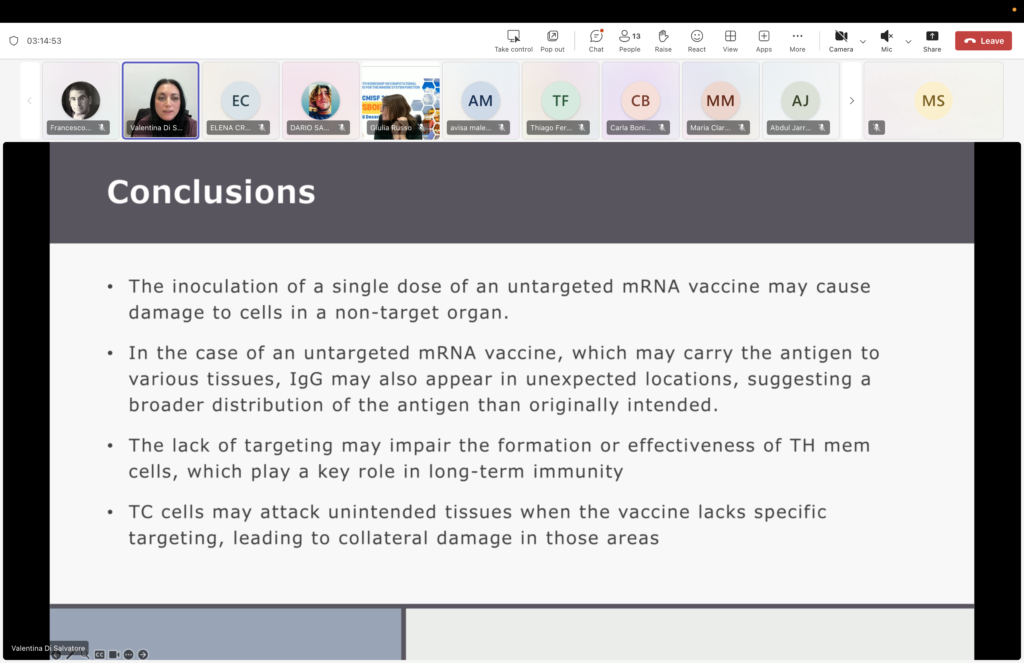
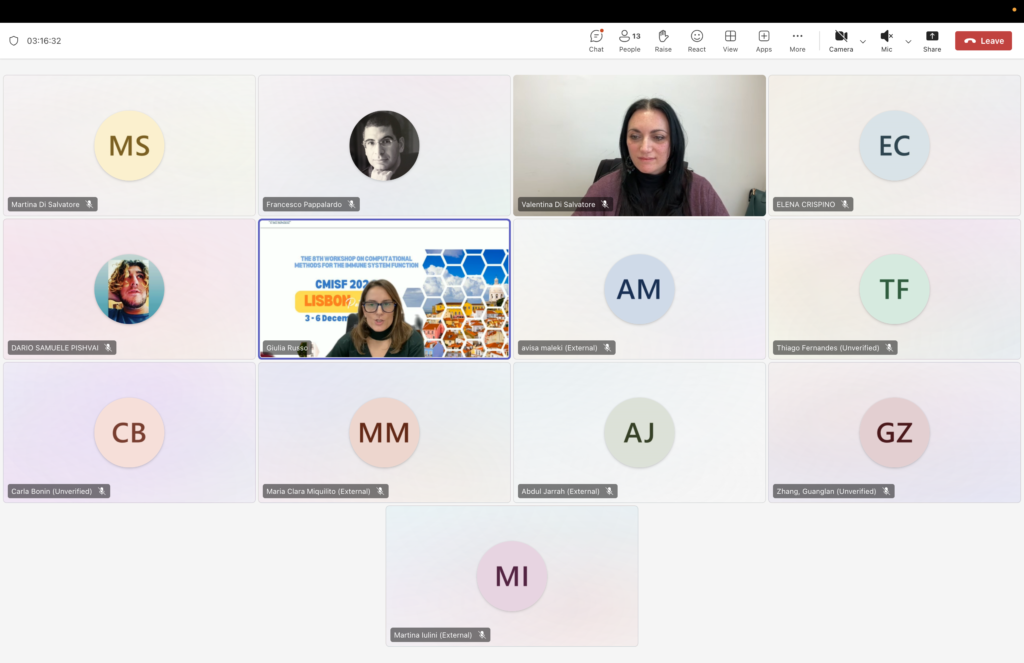
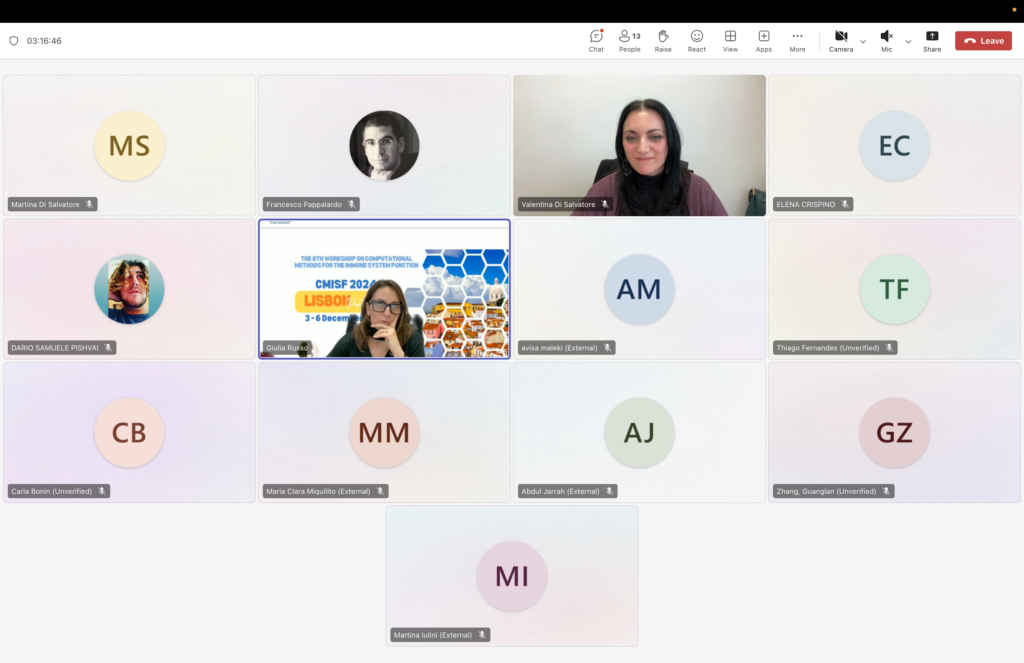
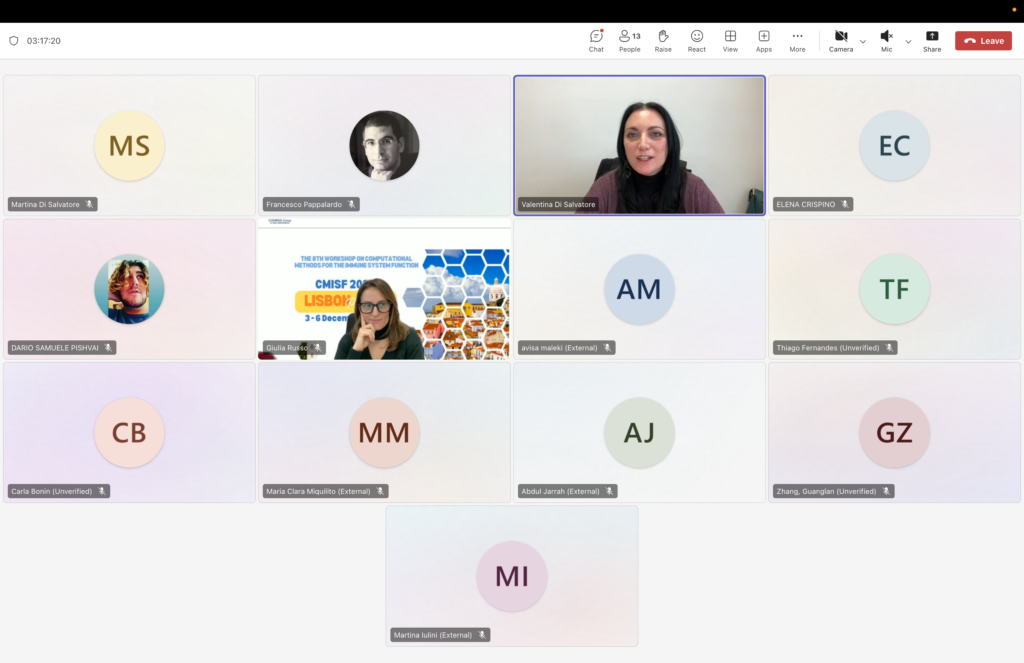
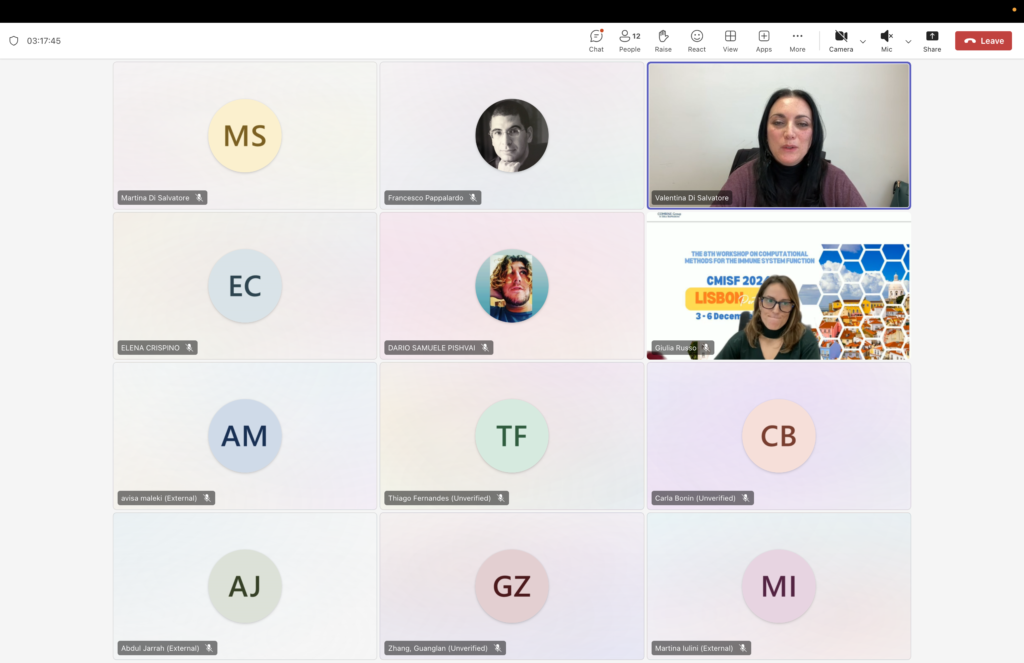
Abdul Wahab
“Agent-Based Modeling of Cutaneous Lupus Erythematosus: Exploring Keratinocyte-Driven Mechanisms”
Abdul Wahab explored the intricate mechanisms of Cutaneous Lupus Erythematosus (CLE), a subtype of Systemic Lupus Erythematosus (SLE), using an enhanced version of UISS with disease-specific layers. The study delves into the role of keratinocytes in CLE development, providing crucial insights into autoimmune disease progression and potential therapeutic targets.
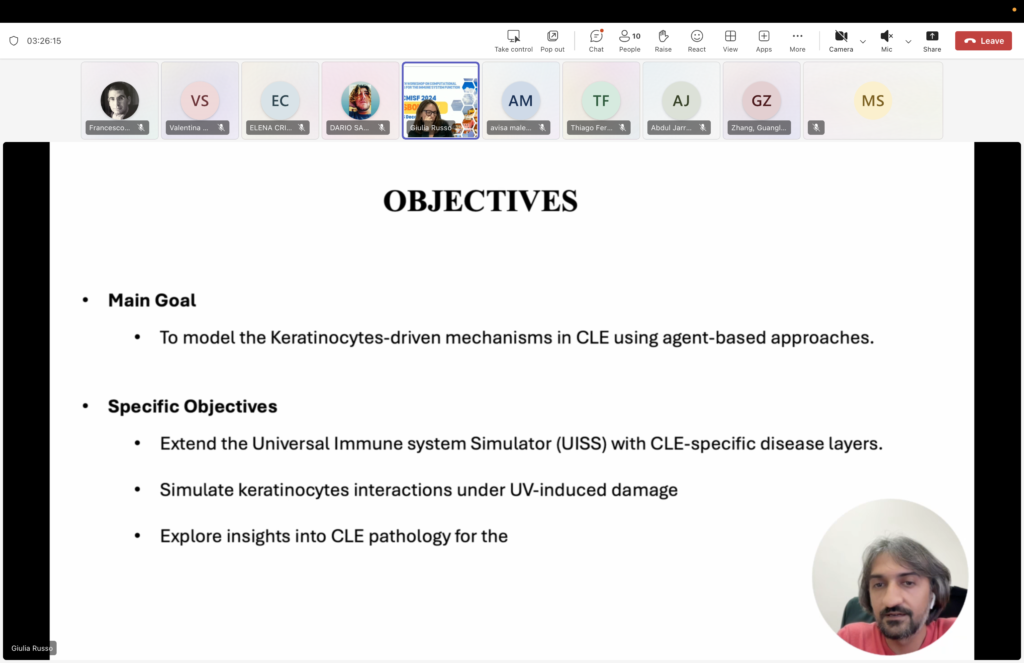
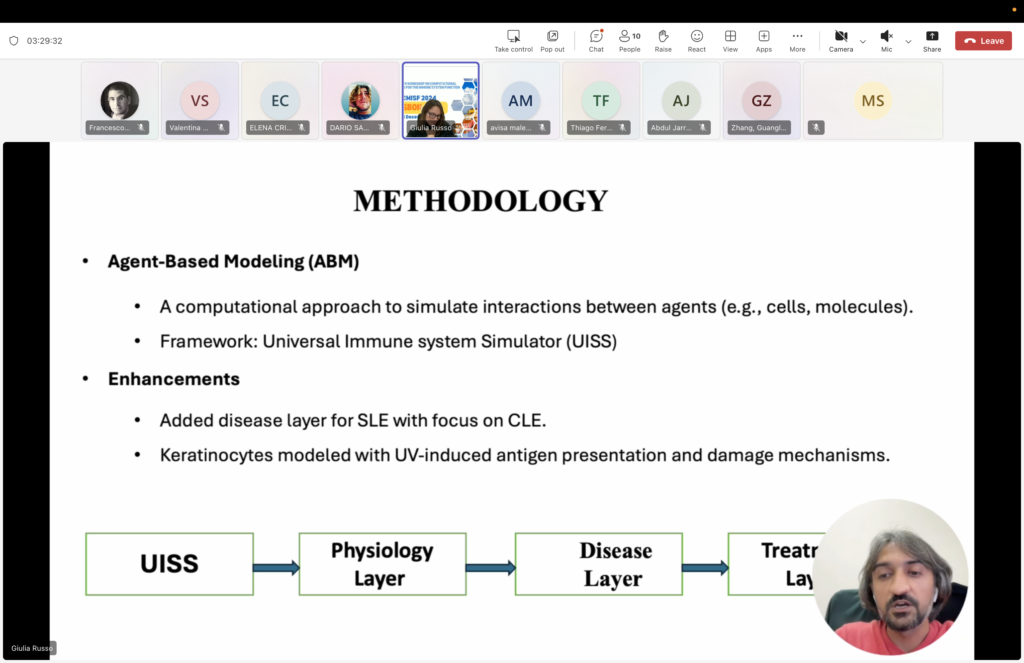
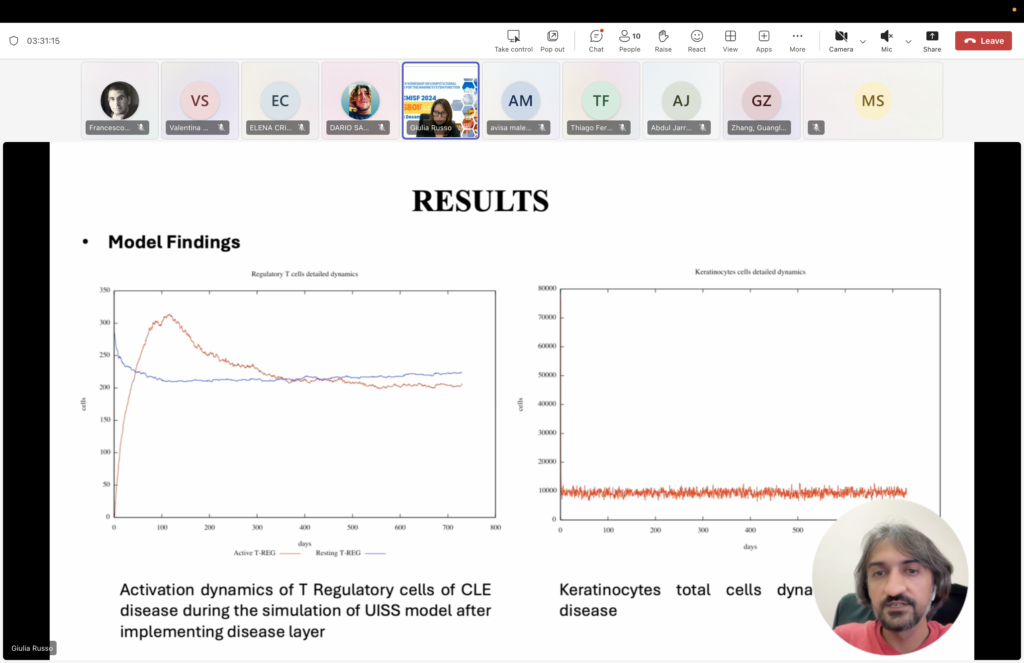
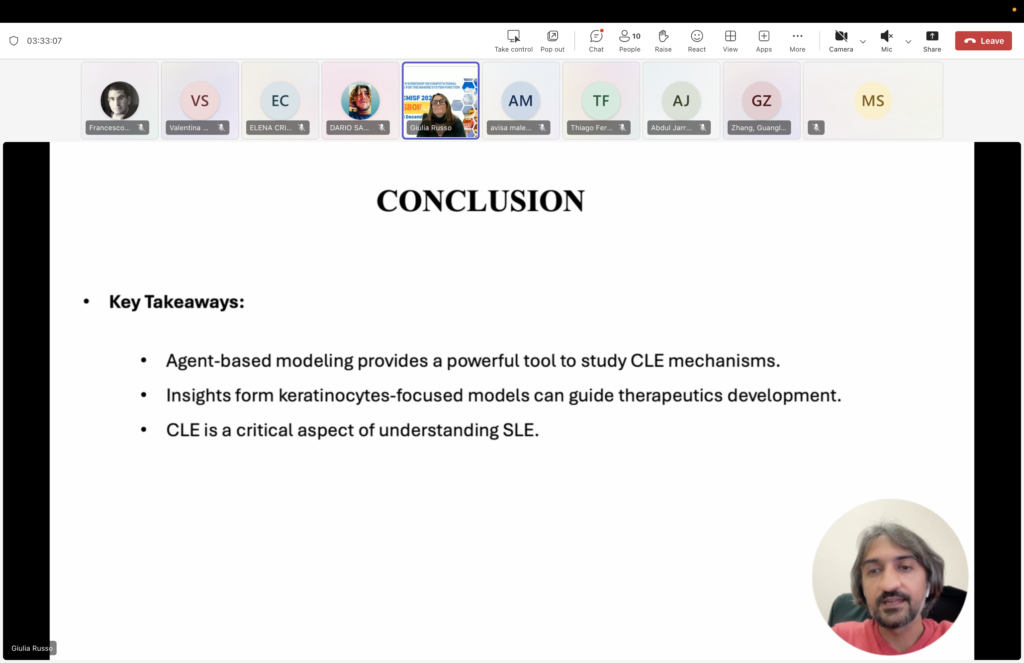
This year’s CMISF workshop reaffirmed the importance of computational immunology in advancing biomedical research. The innovative use of in silico platforms like UISS is shaping the future of medicine by enabling ethical, efficient, and precise modeling of immune responses and disease mechanisms.
As we celebrate another successful edition of CMISF, we look forward to continuing this tradition of excellence and collaboration. See you at CMISF 2025!

